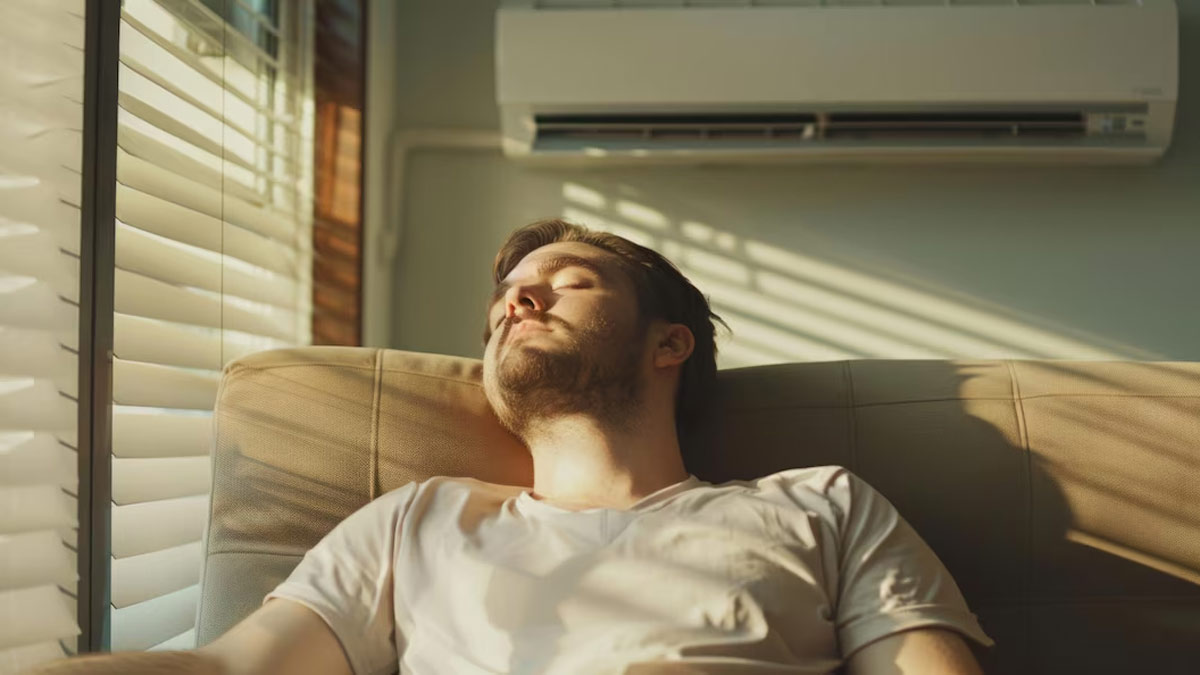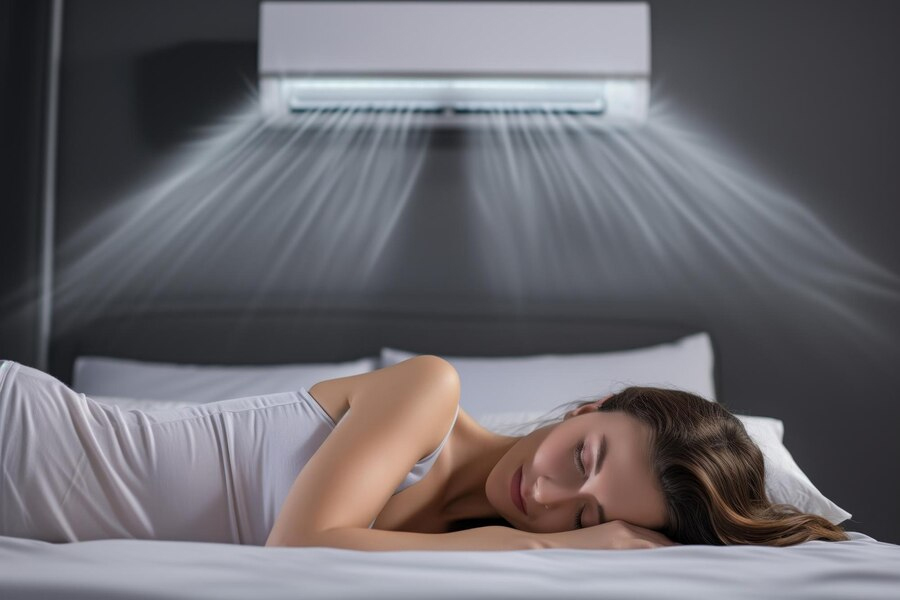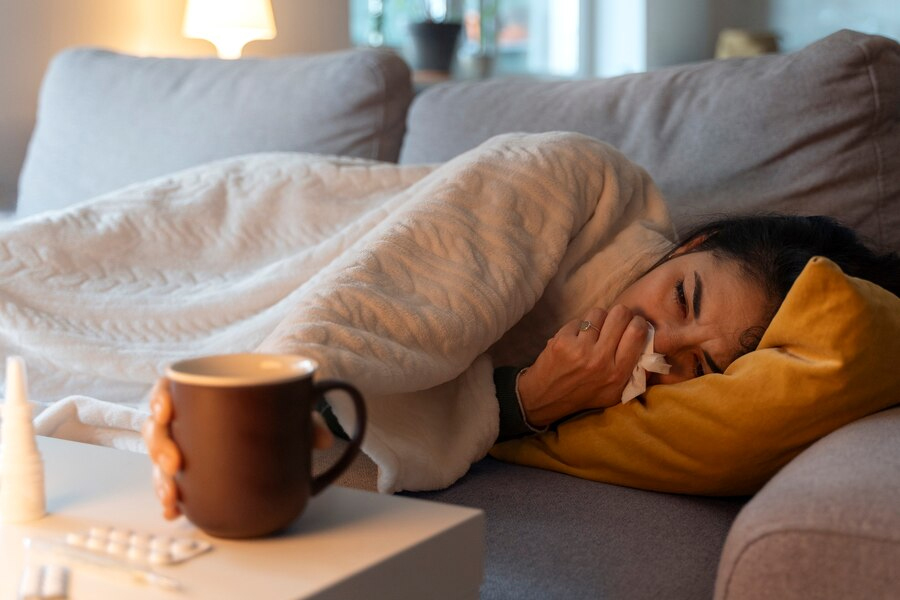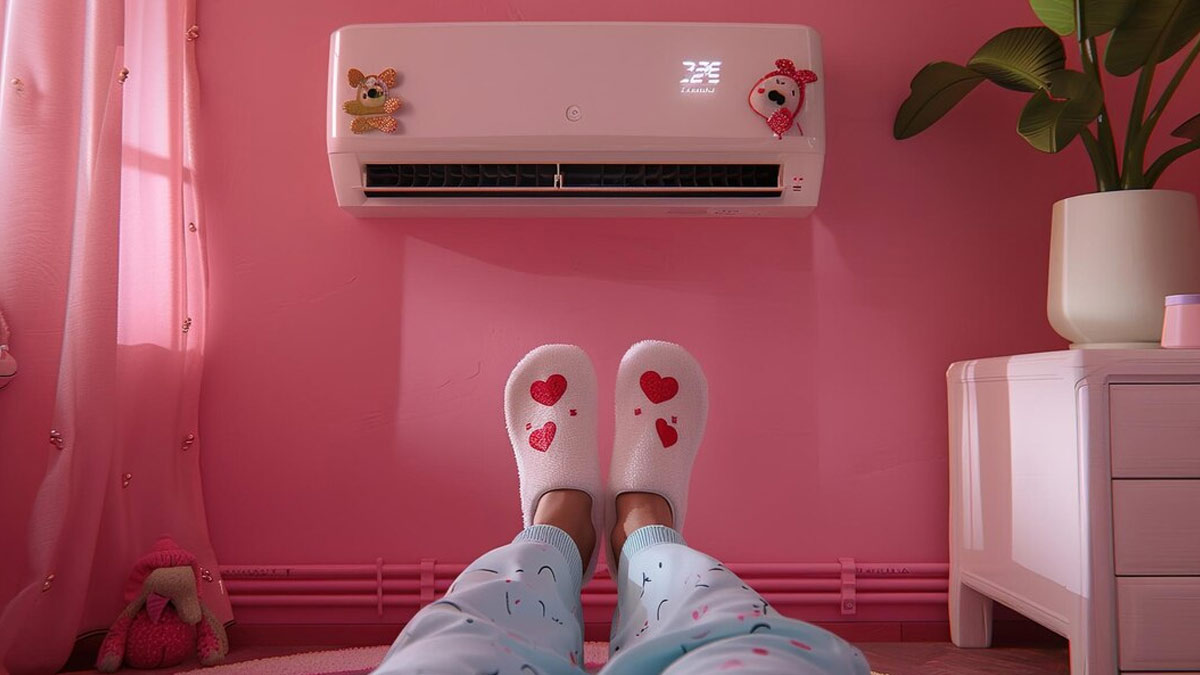
Amid high temperatures, outdoor activities have become impossible. Staying indoors feels like a luxury, and being able to afford air conditioning almost seems like a blessing. According to Dr Vineet Arora, Director, Internal Medicine, Max Super Speciality Hospital, Shalimar Bagh, sleeping in air-conditioned rooms can provide relief during hot and humid nights. It can give people a comfortable indoor environment and help them feel more rested. But there may be a cost to pay. In fact, the doctor says keeping the AC on for prolonged hours may pose certain health risks.
Table of Content:-
‘Air Conditioning Does Not Directly Cause An Illness’

In contrast to popular understanding, where people think AC works by producing cold air, it actually functions by pulling heat out of your home and leaving cool air behind.
With the help of a cooling agent or refrigerant, the AC removes heat from the indoor air and transfers it outdoors, maintaining the desired room temperature.
Also Read: Severe Heat Wave: These 5 Things Can Happen To Your Body As Temperatures Rise Above 45 Degrees
However, Dr Arora says, “Excessive reliance on AC units during hot summers raises concerns about potential health issues. Sleeping with the air conditioning on isn't advisable, not because it's harmful but due to the inability to regulate it while asleep, which may contribute to conditions that might lead to feeling unwell.”
The doctor, however, specifies that sleeping with air conditioning on does not directly cause an illness.
In fact, studies on the effects of air conditioning on health are limited. One study published in the BMC Public Health journal even suggested that keeping patients cool with AC improved their recovery. Researchers even noted that in hot weather, HVAC use led to better vital signs, less stress on the heart, faster healing, and more physical activity for patients. It also helped patients with respiratory problems recover faster and reduced deaths from heatstroke.
Common Health Issues Association With Sleeping With AC On

According to the doctor, while sleeping in an air-conditioned room does not directly cause an illness, it can contribute to conditions that might lead to a feeling of being unwell. Here's why that may happen and the symptoms you can experience:
- Air conditioning can reduce humidity levels, leading to dry skin, a dry throat, and dry nasal passages. This dryness can cause discomfort and irritation, potentially increasing the risk of respiratory issues and infections.
- Setting the AC too cold can cause the body to get too chilled, which might make people more susceptible to colds or respiratory infections.
- Sudden temperature changes when moving from a cool indoor environment to a hot outdoor one can also strain the body and cause muscle stiffness and pain.
- It may increase the risk of respiratory infections, as cold air can weaken the body's immune response and make individuals more susceptible to viral and bacterial infections.
- Sleeping with the air conditioning on can disturb sleep patterns due to noise, temperature fluctuations, and dry air.
- If the AC unit is not well maintained, it can circulate dust, mould, bacteria, and other allergens, which can cause respiratory issues, allergic reactions, or exacerbate asthma symptoms.
The doctor also notes that the symptoms of feeling unwell may vary among individuals and depend on factors like exposure duration, indoor air quality, and temperature levels.”
Also Read: Indoor Air Pollutants And Health: Impact Of Poor Indoor Air Quality On Your Health
Measures To Take

To minimise the potential negative effects of sleeping with air conditioning, Dr Arora lists:
- Keep the thermostat at a comfortable and moderate temperature, typically between 22°C and 26°C, to prevent the body from getting too cold.
- Air conditioning can reduce humidity levels, leading to dryness. Using a humidifier can help maintain optimal humidity levels, reducing the risk of dry skin, throat, and nasal passages.
- Ensure your AC unit is regularly serviced and cleaned. This includes changing or cleaning filters, checking for mould or mildew, and making sure the unit is functioning correctly to avoid circulating dust, allergens, and other pollutants.
- Make sure there is adequate ventilation in the room.
- Use air purifiers to remove airborne particles, such as dust, pollen, and other allergens, which can improve air quality and reduce respiratory issues.
- Drink plenty of water to stay hydrated, as air conditioning can contribute to dehydration. Proper hydration can help prevent dry skin and mucous membranes.
- Wear comfortable clothing that is suitable for a cooler indoor environment to avoid feeling too cold.
- Use indoor air quality monitors to keep track of humidity levels, CO2, and other pollutants, and take necessary actions if levels are outside the recommended range.
- Position the AC vents so that the cold air is not blowing directly onto you while you sleep, as direct exposure to cold air can cause discomfort and increase the risk of respiratory issues.
Conclusion
The ongoing heatwave has taken a massive toll on people’s physical and mental health. Going outdoors has become a challenge, and doing so without a fan or an AC has become impossible. However, when it comes to sleeping in an air-conditioned environment, there are a few health risks to consider, ranging from respiratory issues to skin problems. However, effectively regulating the temperature of the AC, ensuring adequate ventilation in the room, drinking plenty of water, and using a humidifier to maintain optimal humidity levels can also help prevent issues associated with air conditioning.
Also watch this video
How we keep this article up to date:
We work with experts and keep a close eye on the latest in health and wellness. Whenever there is a new research or helpful information, we update our articles with accurate and useful advice.
Current Version